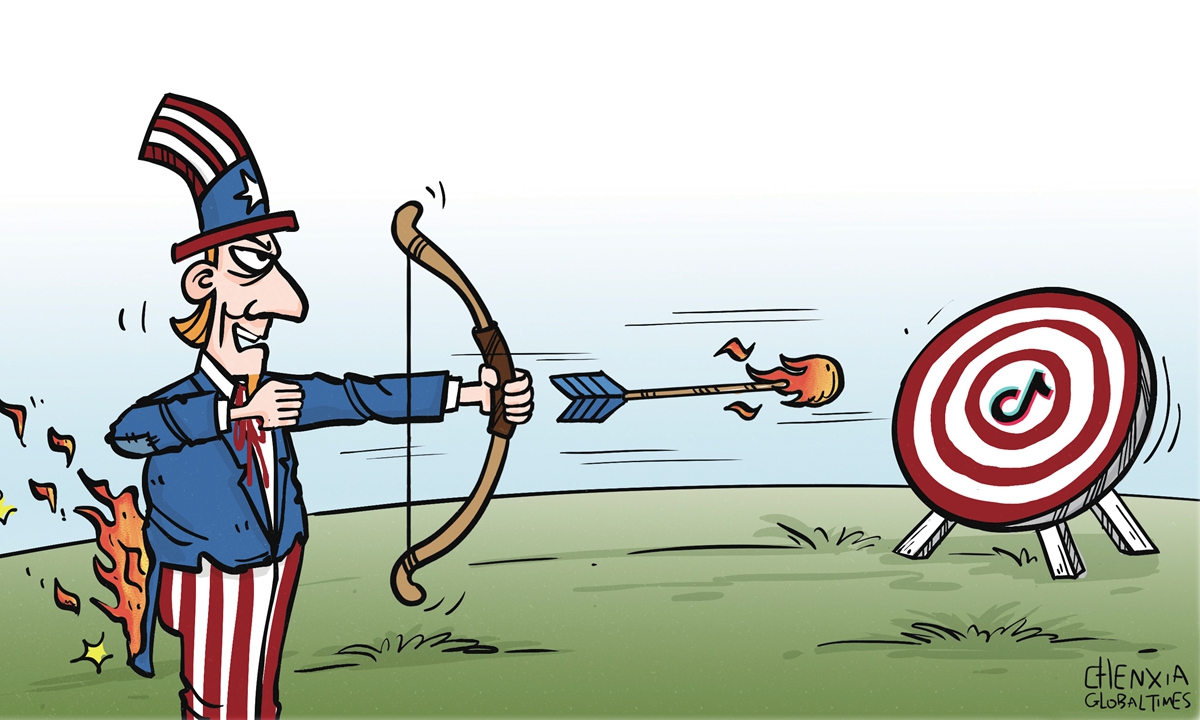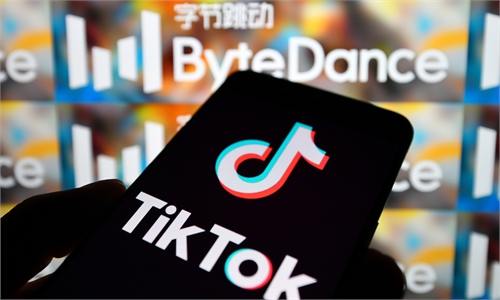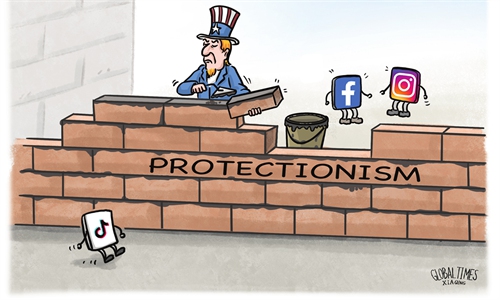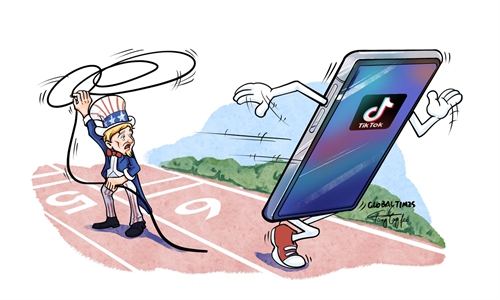
Illustration: Chen Xia/GT
TikTok, which survived US' crackdown during the Trump administration, is once again facing a tightening political noose under the Biden administration. Recently, the US maneuver of banning TikTok has become a hot topic in the US political arena and such actions have even spread to US allies such as Europe and Canada.This is yet another political attack on Chinese companies in the name of national security - it is a political issue rather than a real security issue and an ideological issue rather than a legal one. The accusation that TikTok poses security risks has no specific evidence and is not based on any existing laws. Europe and the US have the most comprehensive legal and policy systems for cybersecurity and national security, and if TikTok brings privacy issues, these issues can be solved through corresponding mechanisms such as data localization and security review.
Obviously, security and privacy are just an excuse for the US to attack TikTok. Politicians who want to destroy it and the business forces behind them do not want to give TikTok the opportunity and the rights to comply with local laws and regulations. Nonetheless, US politicians cannot act recklessly and must consider the consequences, especially the four "backfires" caused by the ban.
First, it will backfire politically. The essence of the problem TikTok is facing is a political issue rather than a real business competition or security and privacy issue, so it is not justifiable. Although it is not enough for the company to rely solely on itself to effectively resolve it, the company can still use legal weapons to fight back and assert its rights. With the deepening of its Project Texas, which aims to safeguard user data and protect US national security interests, TikTok will continue to increase the transparency of its platform maintenance work, including setting up its European Transparency and Accountability Centre in Dublin, and make the public understand its powerful and comprehensive methods for solving national security issues to the greatest extent possible.
Second, it will backfire because of users. The top-down political suppression is highly destructive. However, TikTok has over 100 million users in the US, and the denial of the right to use this popular service for hundreds of millions of US users, especially young users, will inevitably cause significant social backlash. Statistics show that TikTok's advertising revenue exceeded $11 billion in 2022, and has become the main source of income for many top tiktokers.
Third, it will backfire on the global market. The long-term negative effects of the US ban on TikTok cannot be underestimated because currently, US internet giants have a global planning, with businesses covering almost all countries. With this precedent created by the US, other countries in the future can follow its example and obstruct and restrain US platforms by citing political factors. Sanctions on TikTok are also likely to become the most powerful example for other countries to take similar measures against the US.
Fourth, it will backfire on the internet industry. The US government's actions to ban TikTok will pose unprecedented dangers to the openness of the internet industry. On April 28, 2022, the US government, together with over 50 countries, signed and released "A Declaration for the Future of the Internet," which includes pledges to support the future of the internet "that is an open, free, global, interoperable, reliable, and secure" and that "businesses of all sizes can innovate, compete, and thrive on their merits in a fair and competitive ecosystem." However, actions against TikTok clearly undermine the core of the declaration.
Clearly, with the US continuously escalating its attacks on China's rise, the pressure on TikTok will further intensify. The TikTok incident has become a product of the highly intertwined factors of political and business interests, which mutually catalyze and cooperate with each other. Therefore, we can hardly feel optimistic about the future situation. Simply relying on normal business logic, concessions, and compromises is unlikely to effectively alleviate the current crisis.
TikTok is China's first successful globalized internet company and has milestone significance for China's high-tech and development. Therefore, TikTok has become another "sacrificial lamb" after Huawei. Chinese companies should use legal weapons to firmly defend their legitimate rights and interests. Regarding the First Amendment, if the government can solve the "risks" brought by TikTok without banning it, such as through negotiation agreements on how TikTok stores and shares data, then the ban on TikTok cannot be justified, and this argument can also become the core of TikTok's legal challenge.
Chinese companies urgently need to build systematic public goods to globalize and get out of the predicament of going solo. Facing various political interventions by the US, whether it is semiconductors, 5G communication equipment, or the internet, accelerating China's high-tech rise in the global market is the most powerful way to fight back against Western politicians and the fundamental solution to the problem.
The author is a distinguished professor at Zhejiang University and dean of the Wuzhen Digital Civilization Institute. opinion@globaltimes.com.cn



